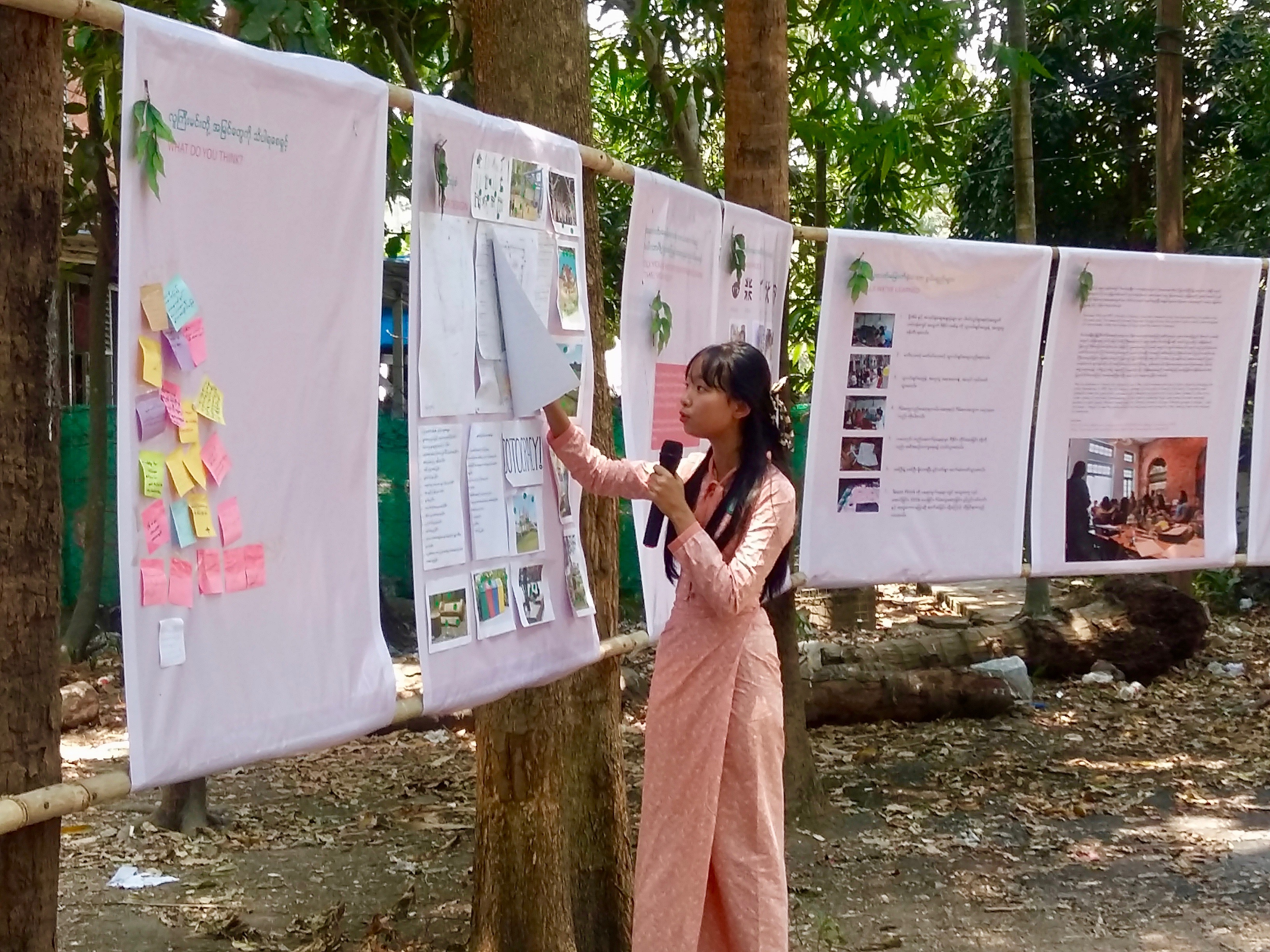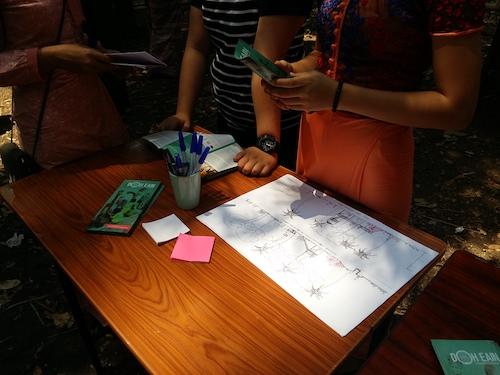
With construction sites squeezing out Yangon’s parks and playgrounds, a team of 15 young women are fighting back by creating their own girl-friendly public spaces.
The teenagers aged 13 to 18 are working with urban design firm Doh Eain to design and build a park on the corner of Yankin road and Yan Naing street in Yankin township, with more planned for Hlaing Thar Yar and Dagon Seikkan townships.
Doh Eain, which means ‘Our Home,’ secured US$10,000 from small-business accelerator Spring for the initiative. One of the recruits, Kyawt Kay Zin Thwe, 14, told Myanmar Mix her home of Yankin already has some community spaces.
“But they are especially for boys, not for girls,” she said, listing football playgrounds in the area.
“There’s a lack of public spaces for girls and it’s customary to make girls stay at home, so I want to create public spaces that are safe for girls and turn this place into an attraction of Yankin.”
Building will start on the Yankin park at the end of April and is expected to finish within a month. Hsu Linn Htet, 17, said the space would include a small suspension bridge, bookshelves cut into the shape of a tree, and exercise equipment.
“Making more public spaces will be better for the community,” Hsu Linn Htet told Myanmar Mix. “We want this project to be a beautiful, safe and energetic place for everyone.”
Doh Eain taught the teenagers how to refine their ideas, perform audits, budget, and prepare scale drawings. The organization’s community engagement officer Swe Swe Aung said they have worked for a year with local and international experts “to discover, test and develop our overall inclusive place-making process.”
She said the team recognized the boundaries girls and women face when it comes to enjoying community space.
Public sexual harassment in Myanmar is likely a common experience for women, according to a 2015 report by women’s rights group Gender Equality Network (GEN).
Almost half of the 38 women interviewees experienced sexual abuse in public spaces and GEN found groping in crowded spaces was prevalent, deterring some women from going to them.
“Traditionally, place making has been somewhat gender blind,” Aye Thant Sin, a member of the Yankin project’s 12-person maintenance committee, told Myanmar Mix.
“This project was an opportunity to discover the relationship between girls and the built environment. We believe that girls will be a key in creating cities that are more inclusive as the world continues to urbanize.”


